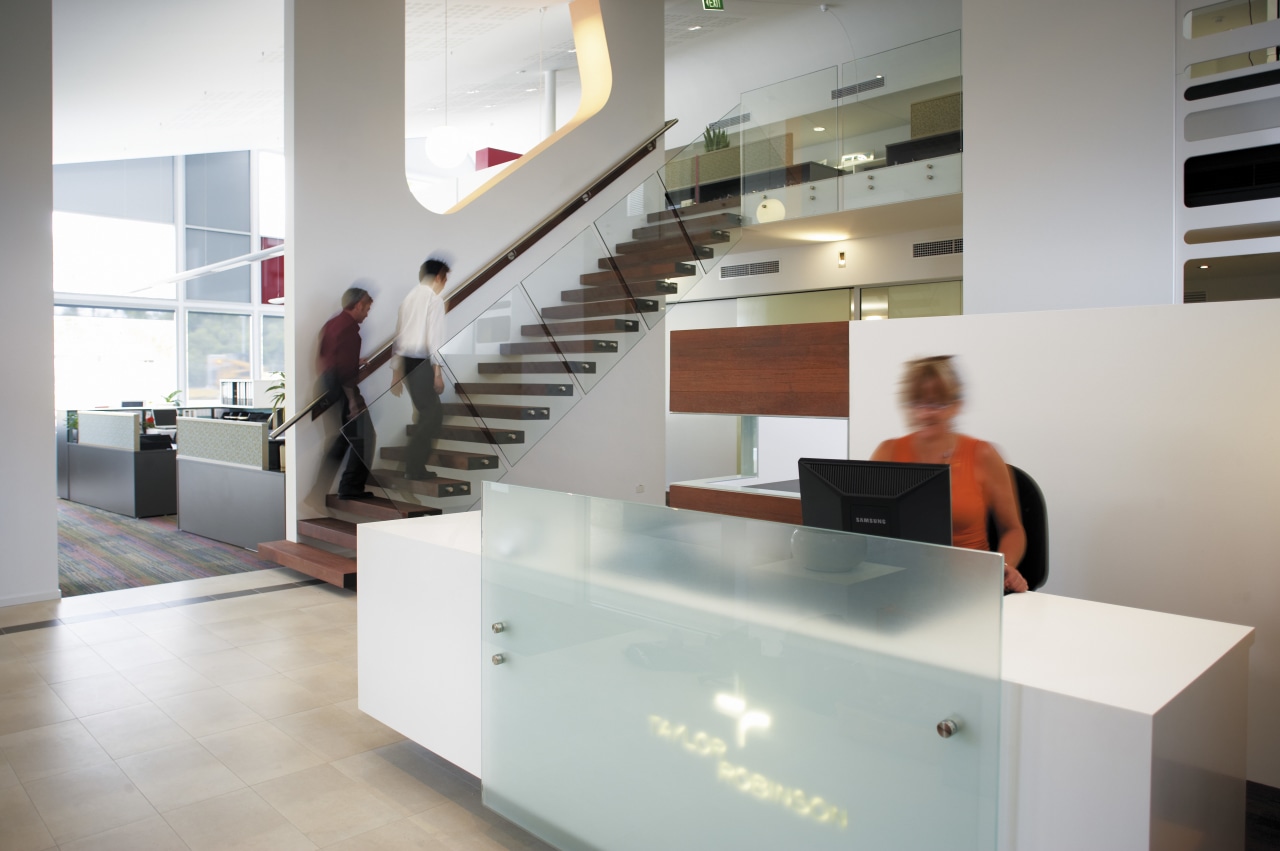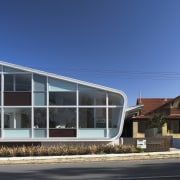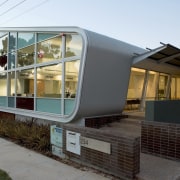New tube
This individualistic building provides a self-advertisement for the architects who designed and tenant it. It also responds directly to its situation

Designing a building you are set to occupy offers a twofold opportunity for an architectural firm. On one hand it can be shaped to meet specific needs, on the other it showcases design skills, creativity and innovation.
This building, by architectural firm Taylor Robinson, sits snugly between a two-level commercial building and a 1930s bungalow forming part of the same property. The owners, an engineering consultancy, had used the bungalow as offices but wanted to expand into the space afforded by an adjacent tennis court. Taylor Robinson was asked to design the new, connecting building, 234 Kimberley Street with the engineers to occupy the rear and the architects themselves taking tenancy of the front half. Project architect Graham Taylor says the only prerequisite from the engineers was that the new building have a sense of structural prominence and that it work well within the constraining site.
"Our response was to create a trapezoid tube that rose to meet the height of the commercial building on one side, and scaled down to meet the bungalow's dimensions on the other," Taylor says. "We were particularly sensitive to how the building interacted with the bungalow. For example, a verandah roof to the side of the structure overlaps, but doesn't touch, the bungalow's verandah overhang. Brickwork at the base and frontage ties in with the bungalow's brick facades, and bull-nosed bricks and other soft curves in the bungalow detailing are also echoed by the rounded corners of the new structure."
Simply put, one of 234 Kimberley Street's most effective attributes is its easily remembered presence.

"We often find people photographing the facade, and passers-by, even from the train, referring to its distinctive look this raises our own business profile within the community."
Besides eye-catching, site-specific design, the building shows an innovative use of inexpensive materials. A skin of Colorbond steel roofing wrapping right round the building combines economy of design with integrity of structure. This is in itself a design self-recommendation.
234 Kimberley Street features floor-to-ceiling glazing at both ends, letting natural light flood lengthways through the interior. This is another user-advantage in energy-conscious times.
Mondrian-like patterning on the end facades adds to the individualistic look and also has a second design advantage. Some structural elements that would be seen from outside with clear glass windows, including structural support for the underground garaging, are disguised through strategic placement of opaque panels. This simplifies the overall appearance of the building.

"Kimberley Street's double-height exterior on one side translates into a generous interior that is lofty as well as light-filled," says Taylor. "This creates a sense of drama appropriate for an architectural firm's offices."
A mezzanine floor increases useable space but retains an intimacy with the ground floor, enabling the architects to talk easily between levels. A privacy wall set between the architects' and engineers' offices is designed to be easily removed if one or both of the companies outgrow its half of the structure, so the building has an element of futureproofing.
Credit list
Architect
Structural engineer
Roofing
Hardware
Blinds
Flooring
Ceiling
Office furniture
Construction company
Quantity surveyor
Facade
Columns
Wallcoverings
Paints and varnishes
Reception furniture
Story by: Charles Moxham
Home kitchen bathroom commercial design
Sculpted by the wind and sun
Light and refined
Expanded presence





